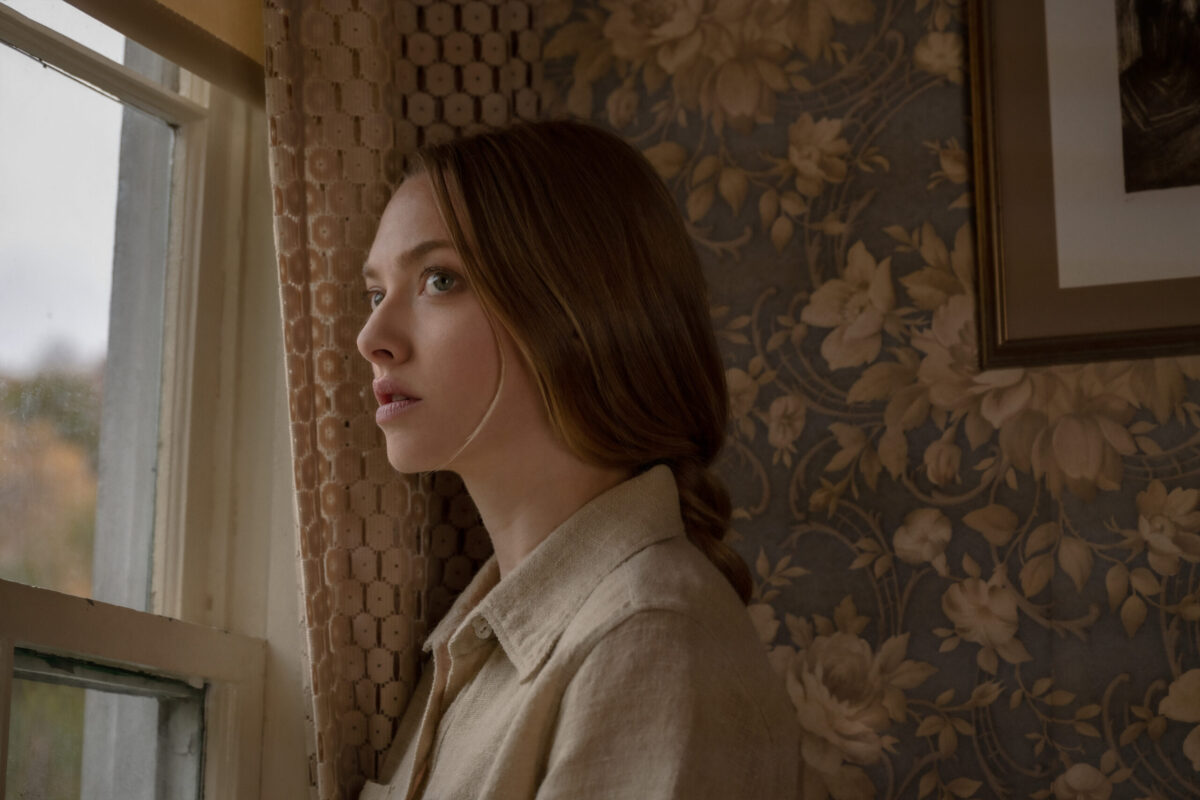REVIEW: Things Heard & Seen Fails to Thrill or Chill
1/5 ghost houses.

Many arts and culture critics agree that there are a finite number of stories in the world. While that number may range from 6 to 7 to 12, depending on whose theory you subscribe to, these story archetypes form a framework through which we can categorize works of fiction. And with so many films/books/series retreading the same stories over and over, the distinction lies not in the story, but in the execution itself. It’s why something as basic as a haunted house story can still be compelling after countless variations on the theme. We can probably predict what will happen, but who cares if we’re thoroughly entertained along the way?
The opposite holds true as well: in a poorly told story, the clichés become more pronounced and more grating. And the audience becomes frustrated, as a movie squanders a premise that has delivered time and time again. In Things Heard & Seen, filmmakers Shari Springer Berman and Robert Pulcini (American Splendor) struggle to breathe fresh life into the haunted house genre. Unfortunately, not even a talented cast can overcome this frustratingly bland and tension-less exercise in domestic horror.
The film follows young married couple Catherine (Amanda Seyfried) and George (James Norton), who move from Manhattan to a small college town in the Hudson River Valley with their young daughter. The couple chooses to move when George gets a position teaching art history at a small liberal arts college, rife with young co-eds who flock to the handsome young professor. Meanwhile, Catherine, who struggles with an eating disorder, is left on her own in the small and isolated town to refurbish a historic old colonial home with its own history of horrors.
Things Seen & Heard, like so many films before it, weaves a haunted house story with a domestic trauma. While we’ve seen successful versions of these stories in films ranging from What Lies Beneath to Crimson Peak, Things Heard & Seen fails to deliver on either jump-scares or brooding dread. The film’s vibe was clearly inspired by Netflix’s more successful domestic horror anthology series The Haunting of Hill House and its sequel Bly Manor.
But while both seasons of that series excel at creating a moody atmosphere and compelling characters, the characters in TH&S are thinly sketched and without motivation. There’s brooding handyman Eddie (Alex Neustaedter), seductive undergrad Willis (Stranger Things‘ Natalia Dyer), and F. Murray Abraham as the college department head/amateur mystic. But none of these characters ever pay off.
Seyfried, fresh off of her Oscar nomination for Mank, is an actress built for the horror genre. With her wide eyes and vulnerability, she instantly inspires sympathy, and you can’t help but root for her. Unfortunately, the film squanders her talents with a ham-fisted script and a total lack of character motivation. And that lack of drive and follow-up extends to the rest of the cast, performing from a script that reads like it was translated into English from an alien language. Simply put, no one acts like a human being, save for Rhea Seehorn’s Justine, another professor who quickly takes Catherine under her wing and calls out the obvious sketchiness of George. Finally, a character with some agency!
The film is an adaptation of Elizabeth Brundage’s 2016 novel All Things Cease to Appear, and it’s immediately clear that much of the nuance of the book was left on the page. And it’s a shame because there’s clearly good stuff here. The house is haunted by a history of wives done wrong and the children they leave behind. There’s generational trauma to unpack, as well as the nuances of emotional abuse and gaslighting. Instead, we get plenty of heavy-handed nonsense, like a toxic husband gaslighting his wife over spilled gasoline (yes really). Unfortunately the film never coalesces into a compelling narrative, failing its heroine and its audience.
You’re better off skipping this one and re-watching The Haunting of Bly Manor.
(image: Anna Kooris/NETFLIX)
Want more stories like this? Become a subscriber and support the site!
—The Mary Sue has a strict comment policy that forbids, but is not limited to, personal insults toward anyone, hate speech, and trolling.—
Have a tip we should know? tips@themarysue.com